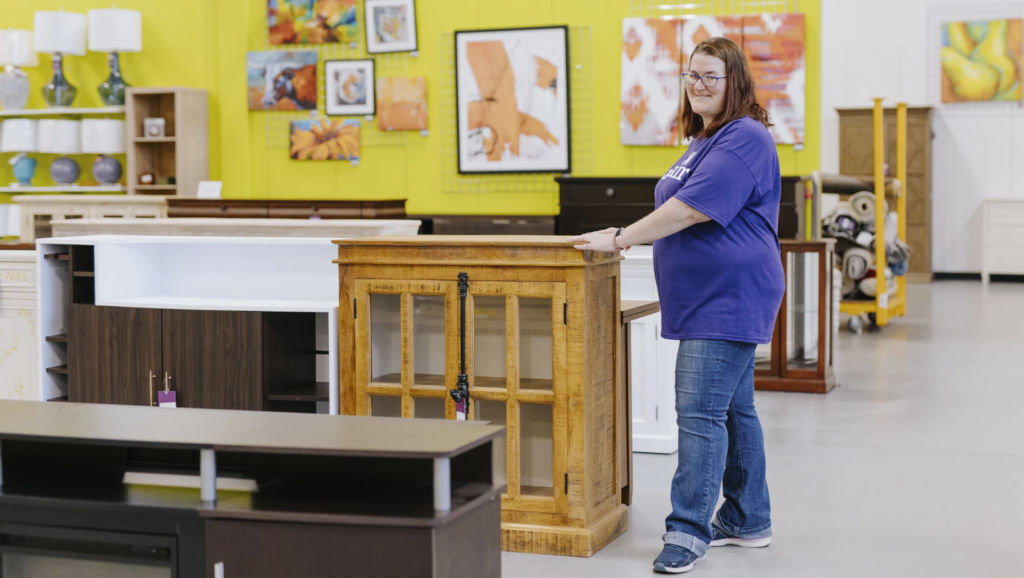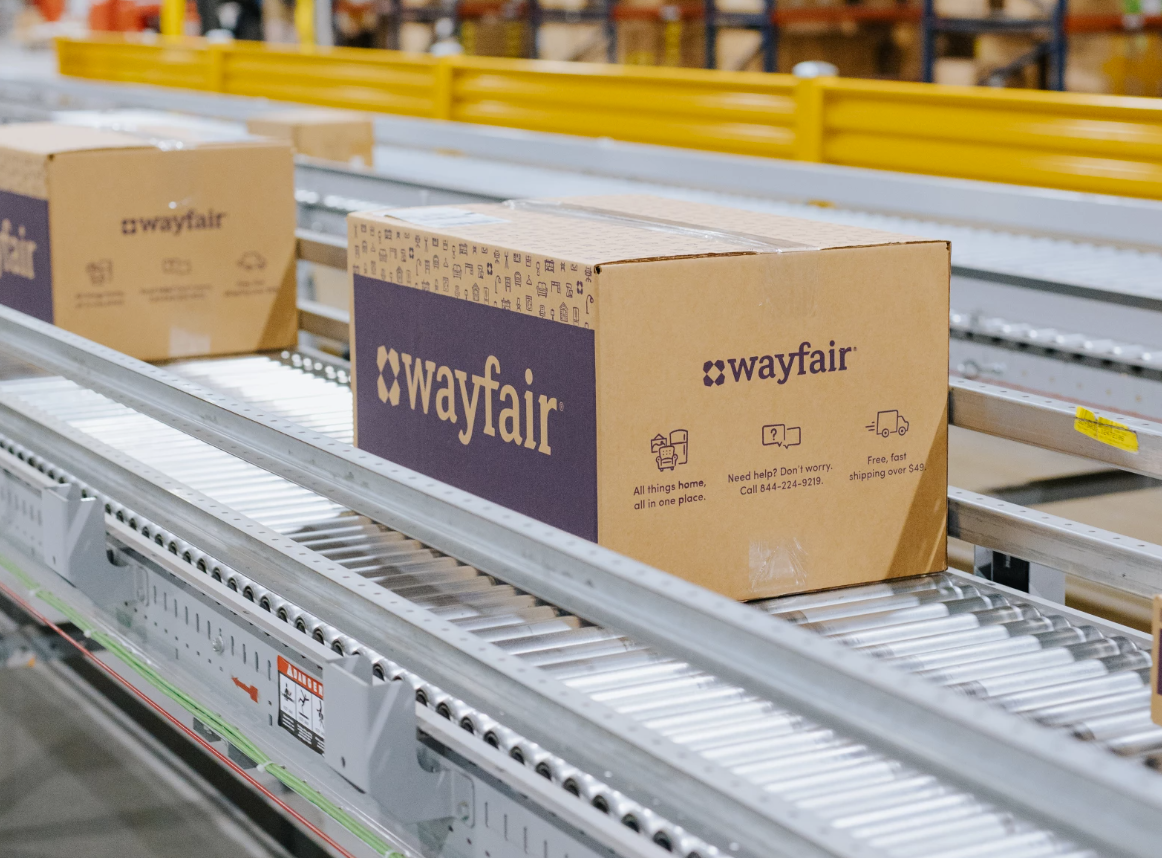In the next part of our ongoing sustainable series, we take a deeper look at global online furniture retailer Wayfair and what they are doing in terms of sustainability.
Wayfair
Just a few months ago, Wayfair released its second Corporate Responsibility Report, with the company sharing and celebrating the progress made across its key areas of impact in 2022. Taking a deeper look, Wayfair says it has been working to address the environmental impacts of its value chain and to do its part to protect the planet for future generations. “Although we’re early in our journey, we have taken key steps to measure our impacts, partner with third‑party experts, and collaborate with essential stakeholders— including within our own operations and with suppliers, vendors, and customers,” the company said.
“Climate change threatens our planet and communities, and Wayfair takes seriously our responsibility to act. Last year, we set a science‑aligned goal to reduce our Scope 1 and 2 greenhouse gas (GHG) emissions by 63% by 2035 (compared to our 2020 baseline). Our carbon reduction goal guides our strategy for reducing the emissions associated with the buildings and fleet that we directly manage. We continue to evaluate and identify pathways to address and minimize Scope 3 emissions.”
Furthermore, Wayfair supports high‑quality renewable energy opportunities globally, including new, expanding, or developing renewable generation sources. In Europe, it has continued to procure renewable energy in 2022, and nine of its eleven European sites have negotiated renewable energy contracts. In 2022, Wayfair conducted energy‑efficiency audits at several fulfilment centres in North America and the UK, and developed roadmaps for lighting and air conditioning retrofits, submetering, and solar implementation. “In the EU and UK, we launched an energy‑efficiency project in the second half of the year and achieved a 34% electricity and 68% gas consumption reduction across two main fulfilment centres between September and December (as compared to 2021).”
Waste and packaging are of particular focus at Wayfair too. The business has been implementing waste management strategies across its global operations, which helps keep usable products and materials out of landfills and incineration. In North America, Germany, and the UK, partners are introducing new processes and waste collection equipment across its facilities to improve diversion rates and reduce costs.


In the EU and UK, operational teams developed a comprehensive baseline of waste management volumes and costs to support the region’s Zero Waste program. In the UK alone, Wayfair implemented a new process to separate and dispose of waste containing potential persistent organic pollutants to ensure compliance with new regulations. In Germany, it implemented new recycling programmes for returned materials, cardboard, and wood waste, as well as trailing manual sorting methods for returns in an effort to increase recycling rates.
“We’re working to improve the sustainability of our packaging and to reduce product damage and return rates,” Wayfair said. “Our new Global Returns and Incident Prevention team targets the root causes of returns—such as damages due to inefficient packaging, product defects, or missing parts—and builds preventative solutions across our organization. Our Packaging team works to improve Wayfair’s packaging and engages suppliers on best practices for damage prevention, minimizing use of unnecessary or excessive materials, and utilizing materials that are curbside recyclable and from recycled content.
“In 2022, we achieved a global 83% recyclability rate for Wayfair’s purchased packaging, including boxes, wrap, fillers, and mailers. To reduce our use of plastic‑based materials, we tested and deployed alternative materials, including swapping out plastic polythene bags for paper bags, using honeycomb paper instead of bubble wrap, and switching to paper‑based box fill materials versus plastic in both Germany and the UK. This led to a reduction of more than 26,600 pounds of plastic in 2022. In North America, we introduced 100% recycled content curbside recyclable paper mailers.”


Wayfair is also actively trying to reduce single-use plastics and has been engaging with suppliers to recommend packaging adjustments that help to reduce damages and shift to more sustainable materials. In response to a recommended improvement, one of its UK dinnerware suppliers was able to remove 11 single‑use plastic components from their previously utilized packaging design. In addition to reducing single‑use plastic, the new design also resulted in a 42% reduction in post‑shipment damages across three products.
On the product side, Wayfair has been driving customers to select sustainable product offerings and encouraging suppliers to adopt third-party sustainability certifications and standards. “As part of our sustainable product strategy, we participate in various industry forums and roundtables to collaborate with peers and share knowledge and findings on industry best practices. We also actively engage with our suppliers on sustainable products and have outlined a distinct preference for Forest Stewardship Council® (FSC®) ‑ certified wood in our Sustainable Wood Sourcing Policy. Our Sustainable Wood Sourcing Policy outlines our expectations for the responsible use of forest resources. The policy specifically covers the wood used in our furniture and includes our preference for FSC®‑certified wood products.
“In 2022, we again achieved a high score on the 2022 Wood Furniture Scorecard, a joint initiative between the Sustainable Furnishings Council and the National Wildlife Federation. The scorecard annually ranks leading North American retailers on their wood sourcing policies and practices, and helps consumers determine which companies they can buy from to protect the world’s forests and the species that call them home.
“As part of our commitment to responsible and ethical end‑to‑end product sourcing, we require that suppliers responsibly source their materials according to our Supplier Code of Conduct. We continually look for additional ways to communicate Wayfair’s strategy and expectations to our suppliers and plan to expand upon our work with supply chain partners in the future. Through our Shop Sustainably programme (which consists of over 15,000 third party certified products), customers are able to easily identify product offerings that have been independently certified to third‑party sustainability standards.”















